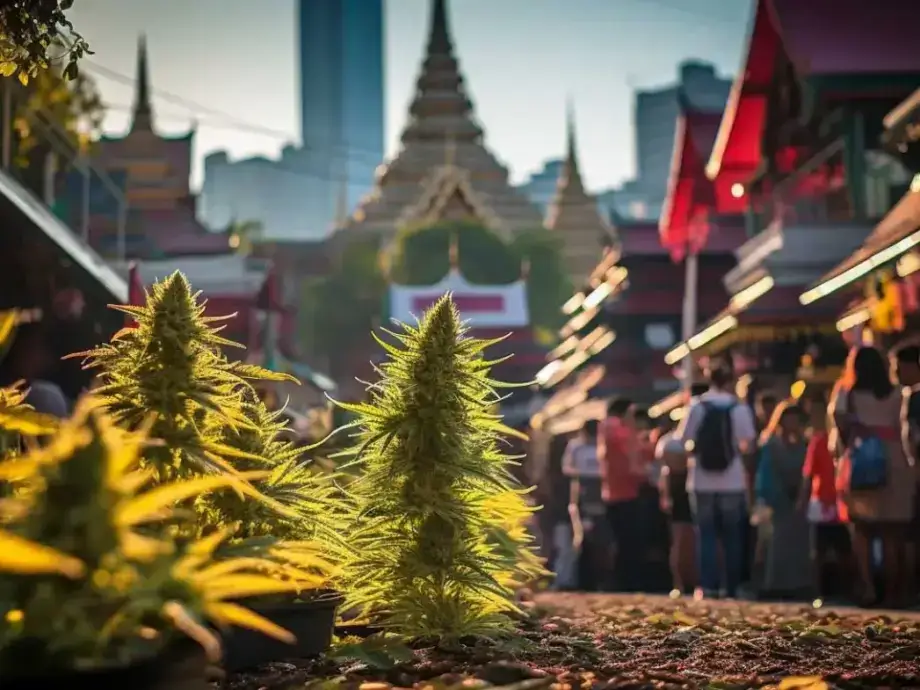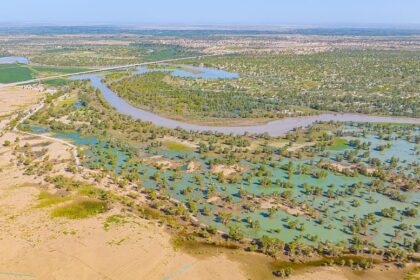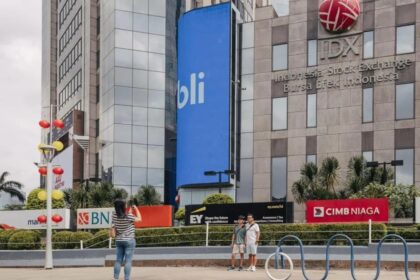Thailand’s Cannabis Boom and the Smuggling Crisis
In 2022, Thailand made headlines as the first country in Asia to decriminalize cannabis, sparking a rapid transformation of its social, economic, and legal landscape. The move was initially celebrated for its potential to boost tourism, invigorate agriculture, and create new business opportunities. Within months, more than 11,000 cannabis dispensaries opened across the country, from the neon-lit streets of Bangkok to the backpacker haven of Khao San Road. Cannabis cafes, weed-themed spas, and even festivals became commonplace, drawing both locals and international visitors.
- Thailand’s Cannabis Boom and the Smuggling Crisis
- How Decriminalization Opened the Floodgates
- The Smuggling Surge: Routes, Methods, and Arrests
- International Pressure and Diplomatic Response
- Regulatory U-Turn: New Rules and Their Impact
- Enforcement Challenges and the Road Ahead
- Broader Implications: Tourism, Economy, and Public Health
- In Summary
However, the lack of a comprehensive regulatory framework quickly led to unintended consequences. The cannabis market became a “wild west,” with minimal oversight, widespread recreational use, and a glut of derivative products like edibles and concentrates. This regulatory vacuum not only fueled domestic concerns over public health and youth access but also triggered a dramatic surge in international smuggling—particularly to the United Kingdom.
How Decriminalization Opened the Floodgates
Thailand’s decriminalization policy removed cannabis from the list of narcotics, making it legal to grow, trade, and use marijuana and hemp products. While medical marijuana had been legal since 2018, the 2022 reforms went much further, allowing for recreational use in private settings. The government’s hope was to create a new cash crop for farmers and attract tourists seeking a more liberal cannabis environment.
But the absence of clear laws governing production, sale, and export created loopholes. Dispensaries proliferated, often with little regard for age restrictions or licensing. Online sales of cannabis-infused products, though technically illegal, became widespread. Foreign drug syndicates exploited the situation, using Thai nominees to set up large-scale cultivation operations and flooding the market with potent strains. Prices plummeted, making it attractive for smugglers to export cannabis to countries where it remained illegal and far more valuable.
The Smuggling Surge: Routes, Methods, and Arrests
The UK quickly became a primary destination for Thai cannabis. Smuggling operations ranged from mailing vacuum-sealed packages to recruiting young travelers as couriers. These “mules” were often lured by promises of easy money—typically around £2,000 per trip—carrying suitcases filled with up to 46 kilograms of cannabis on flights from Thailand to the UK, often via third countries like Singapore or Georgia.
British and Thai authorities began to notice the trend in 2023. According to the UK’s National Crime Agency (NCA), 142 couriers carrying five tonnes of cannabis were intercepted in 2023. By 2024, that number had soared to 800 couriers and 26 tonnes, with the pace continuing to rise. The UK government reported a 90% increase in cannabis seizures from Thailand by post, with over 15 tonnes detected in the last quarter of 2024 alone.
Recent high-profile arrests have underscored the risks. In one case, two young British women were detained in Georgia and Sri Lanka with large quantities of Thai cannabis, facing lengthy prison sentences. Since July 2024, over 50 British nationals have been arrested in Thailand for attempted smuggling, and 173 people have gone through the UK court system, receiving sentences totaling 230 years.
International Pressure and Diplomatic Response
The scale of the smuggling crisis prompted a diplomatic response. The UK and Thailand launched joint operations, such as Operation Chaophraya at Bangkok Airport, resulting in the surrender of over two tonnes of cannabis from transiting passengers. The UK Border Force and Thai Customs established new agreements requiring parcels from Thailand to be checked before shipment, leading to a 90% reduction in cannabis arrivals by post in early 2025.
Seema Malhotra, the UK’s Minister for Citizenship and Migration, highlighted the importance of international cooperation:
“Our partnership with Thai customs has slashed cannabis smuggling in the post by 90% in just three months. This collaboration is delivering real results and it’s a prime example of how international cooperation is crucial to our Plan for Change, safer streets mission.”
Thai Customs spokesperson Panthong Loykulnanta acknowledged the challenges:
“The profit is very high, but the penalties here are not high. Most of the time when we catch people at the airport they abandon their luggage. But then there is no punishment. If they insist on checking in the luggage, we can arrest them, but they just pay the fine and try again.”
Regulatory U-Turn: New Rules and Their Impact
Facing mounting international and domestic pressure, Thailand’s government has moved to rein in the cannabis industry. In June 2025, Public Health Minister Somsak Thepsuthin announced new regulations restricting cannabis sales to medical use only. Under the new rules, dispensaries can sell cannabis only to customers with a doctor’s prescription and a medical certificate indicating their illness. Shops must have a doctor present to renew or apply for a license, and the amount sold will be limited to a 30-day supply.
These measures are intended to close the loopholes that allowed for widespread recreational use and smuggling. The government has also signaled that cannabis may soon be re-listed as a narcotic, effectively recriminalizing recreational consumption. However, the timeline for full implementation remains unclear, and the new rules are likely to be temporary until a comprehensive cannabis bill is passed—a process expected to take up to two years.
The regulatory shift has sparked fierce debate within Thailand. Proponents argue that tighter controls are necessary to restore order and focus the industry on its original medical intent. Tom Kruesopon, a businessman who helped legalize marijuana, now supports the crackdown:
“You cannot have a free-for-all, right? This became a bar fight rather than a boxing match. When there is a weed shop on every corner, when people are smoking as they’re walking down the street, when tourists are getting high on our beaches, other countries being affected by our laws, with people shipping it illegally – these are negatives.”
Opponents, including small-scale growers and cannabis activists, warn that the new rules will devastate local businesses and do little to curb illegal activity. Kitty Chopaka, a prominent advocate for small producers, expressed frustration:
“I totally understand that the government is probably getting yelled at during international meetings. Countries saying ‘All your weed is getting smuggled into our country,’ that is quite embarrassing. But right now they are not even enforcing the rules that already exist. If they did, that would probably mitigate a lot of the issues like smuggling, or sale without a licence.”
Enforcement Challenges and the Road Ahead
Despite the new regulations, enforcement remains a significant challenge. Thai customs officers continue to intercept large quantities of cannabis at airports, with over 800 smugglers caught and more than nine tonnes seized between October 2024 and March 2025. Seized suitcases, often filled with branded cannabis strains like “Runtz” and “Zkittlez,” pile up in airport backrooms.
Legal ambiguities persist. While cannabis has been declassified as a narcotic in Thailand, cannabis buds remain a controlled substance. Export, research, sale, or commercial processing of these buds requires a license under the Protection and Promotion of Thai Traditional Medicine Wisdom Act and the Public Health Ministry’s 2022 regulations. However, penalties for violations are often limited to fines, and many smugglers simply abandon their luggage to avoid prosecution.
Industry insiders argue that illegal growers and syndicates will continue to operate outside the law, regardless of new regulations. Parinya Sangprasert, a grower and protester, emphasized the need for better enforcement of existing rules rather than sweeping new restrictions:
“If you want to buy or sell a large amount of cannabis, you need a licence, issued by our government. Every weed shop must obtain this to buy marijuana, and there are records kept of which farm it’s from and who it was sold to.”
Meanwhile, the government is soliciting feedback from the public and industry stakeholders on the proposed regulations, with a deadline set for June 5. The draft cannabis bill, unveiled in September, has yet to be approved by the cabinet or reach parliament for deliberation.
Broader Implications: Tourism, Economy, and Public Health
The cannabis policy reversal has far-reaching implications for Thailand’s economy and society. The initial boom created thousands of jobs and new revenue streams for farmers, entrepreneurs, and the tourism sector. The Thai Chamber of Commerce estimated the industry could be worth $1.2 billion annually. However, the lack of regulation also led to public health concerns, including increased youth access and addiction rates.
Tourism, a key pillar of Thailand’s economy, faces uncertainty. Cannabis-friendly tourism had become a major draw, with cities like Chiang Mai and Bangkok hosting weed festivals and themed events. The new restrictions may dampen this appeal, especially for foreign visitors seeking recreational use. At the same time, the government is under pressure to balance economic benefits with public safety and international obligations.
Gloria Lai, Asia regional director for the International Drug Policy Consortium, cautioned against rushed policy changes:
“The health minister’s announcement appears to be a knee-jerk reaction to concerns about people smuggling cannabis out of Thailand, and it is questionable whether the proposal to restrict the buying and selling of cannabis to medical prescription only will solve that concern.”
Rattapon Sanrak, founder of the Highland Network, warned of potential chaos if the new rules are enforced too quickly:
“Sudden enforcement could cause chaos. If the law takes effect right away, businesses, the public and officials will not have time to learn the new rules or adjust their work. Changing everything overnight is not realistic.”
In Summary
- Thailand’s 2022 decriminalization of cannabis led to a booming, largely unregulated market and a surge in international smuggling, especially to the UK.
- Joint operations between Thai and UK authorities have resulted in significant seizures and arrests, with over 800 smugglers intercepted and a 90% reduction in postal cannabis shipments.
- New regulations restrict cannabis sales to medical use only, requiring prescriptions and limiting quantities, with the possibility of full recriminalization looming.
- The policy reversal has sparked debate, with supporters citing the need for order and critics warning of economic harm and ineffective enforcement.
- Enforcement challenges persist, as penalties remain low and illegal syndicates adapt to new rules.
- The future of Thailand’s cannabis industry remains uncertain, with a comprehensive regulatory bill still in development and ongoing tensions between economic, public health, and international concerns.












